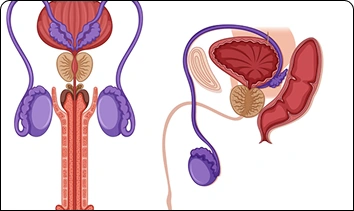Penile Cancer


Understanding Penile Cancer
Penile cancer is a rare malignancy that develops in the tissues of the penis. It usually starts in the skin or glans (head) and can spread to deeper tissues or nearby lymph nodes if untreated. Early diagnosis is crucial for effective treatment and preserving quality of life.
At Dr. Amit Goel – Best UroOncologist in Gurugram, we provide comprehensive care for penile cancer, including early detection, advanced treatment, and long-term follow-up.
Common Symptoms of Penile Cancer
- A lump, sore, or growth on the penis that does not heal
- Changes in skin color or thickening
- Ulcers or bleeding from the penis
- Pain or discomfort during urination or sexual activity
- Swelling in the penis or nearby lymph nodes
- Foul-smelling discharge
Early evaluation by a urologist is essential for timely treatment.
Causes & Risk Factors
- Human Papillomavirus (HPV) Infection: Major risk factor for penile cancer
- Poor Hygiene: Especially in uncircumcised men
- Smoking: Increases risk of penile malignancy
- Age: More common in men over 50
- Phimosis: Tight foreskin that is difficult to retract
- Chronic Inflammation or Skin Conditions
Diagnosis
Accurate diagnosis is key for effective treatment:
- Physical Examination: Detecting growths, lesions, or skin changes
- Biopsy: Confirms the presence and type of cancer
- Imaging: MRI, CT scan, or ultrasound to assess the extent and lymph node involvement
- Blood Tests: To evaluate overall health and organ function
Penile Cancer Treatment Options
Treatment depends on the stage and spread of the cancer:
A. Surgery
- Local Excision: Removal of small tumors while preserving penile tissue
- Partial or Total Penectomy: Removal of part or all of the penis in advanced cases
- Lymph Node Dissection: If cancer has spread to nearby lymph nodes
B. Radiation Therapy
External beam or brachytherapy (internal radiation) may be used alone or after surgery to destroy remaining cancer cells
C. Chemotherapy
Topical, systemic, or combination therapy for advanced or recurrent cancer
D. Minimally Invasive & Reconstructive Surgery
- Preserves function and appearance in suitable cases
- Reconstructive procedures can restore urinary and sexual function
E. Follow-up & Monitoring
- Regular check-ups, imaging, and lab tests to detect recurrence early
- Psychological support and rehabilitation for quality of life
Prevention & Long-term Care
- Practice good penile hygiene
- HPV vaccination in eligible populations
- Avoid smoking
- Early evaluation of persistent sores or lumps
- Regular follow-ups after treatment to ensure long-term health
